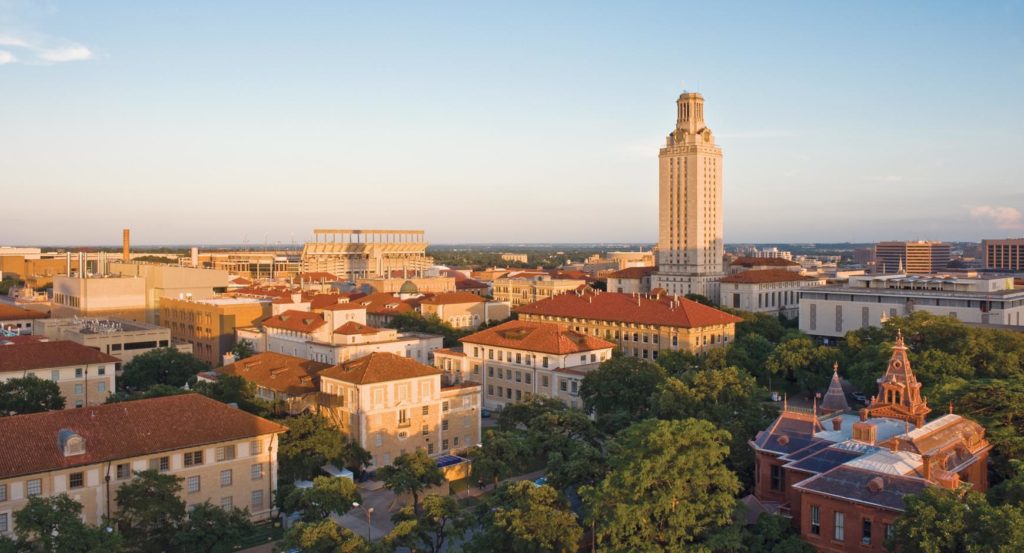The University of Texas at Austin has launched a first-ever pilot housing scholarship program to assist students from low-and middle-income families. The program, which initially prioritizes first-year students, will provide scholarships to offset housing costs by up to $1,800 per academic year for students who are eligible for free or reduced tuition through Texas Advance Commitment, and who elect to live in University residence halls.
“We have already made progress in reducing and, in some cases, eliminating the cost of tuition for our students who can least afford it, through programs such as the Texas Advance Commitment,” said Jay Hartzell, UT Austin president. “Now we are actively working to identify new and more expansive solutions to mitigate the rising cost of Austin’s housing market, which has become a more acute financial barrier. This pilot program is the next step in our strategic effort to support our students in new ways.”
Data show that students who live closer to campus with greater access to food services, academic support and social activities have higher retention rates and success.
The scholarship is available to offset housing costs for an estimated 3,500 eligible students. Scholarships will be awarded in order of housing application date and prioritize first-year students. Eligible first-year students who have decided to forgo University housing will be reinvited to apply. The University will begin notifying eligible students April 19.
- Students whose family income is $65,000 a year or less and who receive full tuition benefits through Texas Advance Commitment are eligible for a housing award of $1,800 for the 2023-2024 academic year.
- Students whose families make between $65,001 and $125,000 annually and who receive tuition support through Texas Advance Commitment are eligible for an award of $900.
- Eligible students may choose any University residence hall, subject to availability.
To fund the pilot program, the University expects to set aside $5.8 million for the 2023-2024 academic year from University housing revenue. The University will continue to set its housing rates consistent with the local market while seeking to remain at or below the market average. The 2023-2024 housing rates will reflect an average percentage increase that is less than recent years. The net effect of the scholarship and modest rate increases will result in the opportunity for eligible students to pay less for on-campus housing this year than they did or would have last year.
“This pilot scholarship program is the next step among many that we will take as we work to expand initiatives and introduce new opportunities to benefit our students,” Hartzell said. “Improving access to housing on or near campus aligns with our core objective of enabling success for all our students and ensuring the highest-potential students continue to pursue their education at UT Austin.”
UT recently accelerated its two-prong housing affordability strategy: lowering cost and increasing supply. In 2021, the University purchased and updated Dobie Tower, adding 778 beds for undergraduates on campus. Another residence hall with 784 beds for graduate students is under construction and expected online for fall 2024. In addition, UT continues to explore new housing on underdeveloped University-owned land, adding capacity to existing residence halls and opportunities to acquire existing housing near campus. A similar strategy is in place to address housing affordability for faculty and staff members, including exploring partnerships with financial institutions to expand credit availability, as escalating home prices threaten the University’s ability to attract and retain talent.
The pilot housing scholarship is UT’s latest initiative to address student success by offsetting the total cost of attendance for students who have the greatest financial needs in relation to housing, tuition, books, and ancillary needs.





